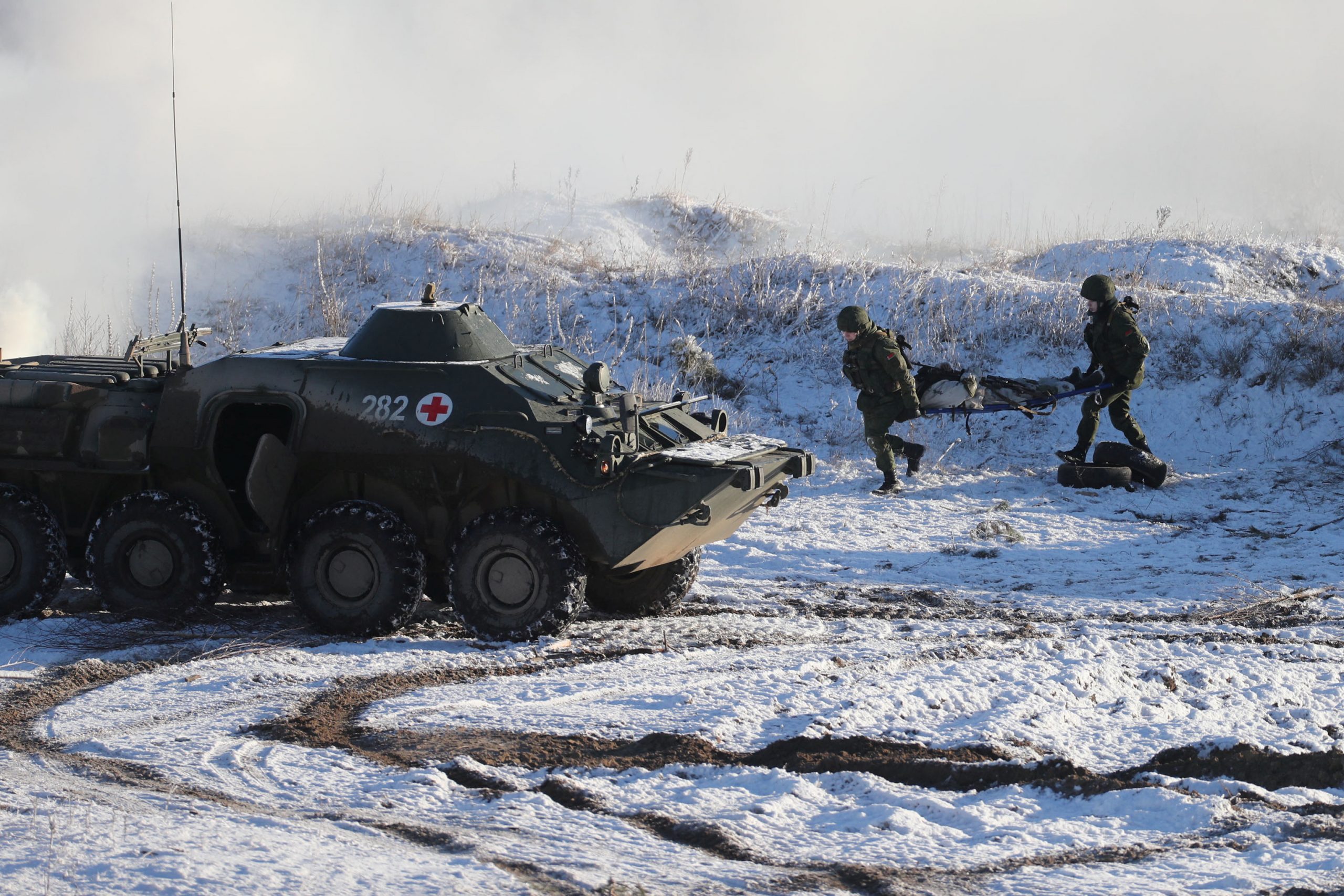
Lauren Moye, FISM News
[elfsight_social_share_buttons id=”1″]
President Joe Biden and Russia’s President Vladimir Putin held a third phone conference regarding Moscow’s recent troop amassment on their Ukrainian border. Satellite images show that more than 100,000 Russian soldiers have now effectively surrounded the smaller nation for what Russia continues to defend as military exercises.
In recent days, top U.S. officials have warned that the tensions have escalated to the point of being “in a window when an invasion [of Ukraine] could begin at any time.” The U.S. and other countries have stepped up diplomatic efforts in an attempt to deter Russia from making a catastrophic mistake that will be costly to human life.
Yesterday, Biden and Putin spoke on the phone for over an hour according to a White House senior administration official. The official later described the phone call as “professional and substantive” but did not result in any “fundamental change” in relations between Russia, Ukraine, and North Atlantic Treaty Organization (NATO) countries.
NATO countries like the U.S., France, and Britain have consistently warned that there would be dramatic consequences for Russia if they disregard Ukraine’s sovereignty and territorial integrity. As part of the push for diplomacy, the countries also stay in close communication with each other to coordinate strategies to both deter Russia and to react if Putin orders an invasion.
“But it remains unclear whether Russia is interested in pursuing its goals diplomatically as opposed to through the use of force,” the White House official said.
The official later added that “the stakes of this are too high not to give Russia every chance to avoid an action that we believe would be catastrophic.”
Although the U.S. has recently ordered stationed personnel to leave Ukraine, including the Florida National Guard members who were involved in training Ukrainian military members, the White House did announce yesterday that 3,000 additional troops were being deployed to Poland.
In the coming week, Chancellor Olaf Scholz of Germany plans to take his turn at diplomatic efforts. He is scheduled to meet with Ukrainian President Volodymyr Zelensky on Monday in Kyiv and with Putin in Moscow on Tuesday. In recent weeks, Germany has faced criticism for actions taken in this matter, including forbidding NATO country Estonia from transferring German-made weapons to Ukraine.
A German government official told Reuters, “The chancellor will make clear that any attack on Ukraine will have heavy consequences … and that one should not underestimate the unity between the European Union, United States, and Britain.”
Among the Kremlin’s demands to deescalate tensions is a guarantee that Ukraine would not be allowed to join NATO, deploy missiles near the Russian border, and for NATO military infrastructure to revert to 1997 levels. So far, none of these proposals have been agreed to by the U.S. and its allies.
When reporting on the call between Biden and Putin, the official stated, “The transatlantic relationship is more closely aligned than it has been in quite some time. NATO is stronger and more purposeful.”
